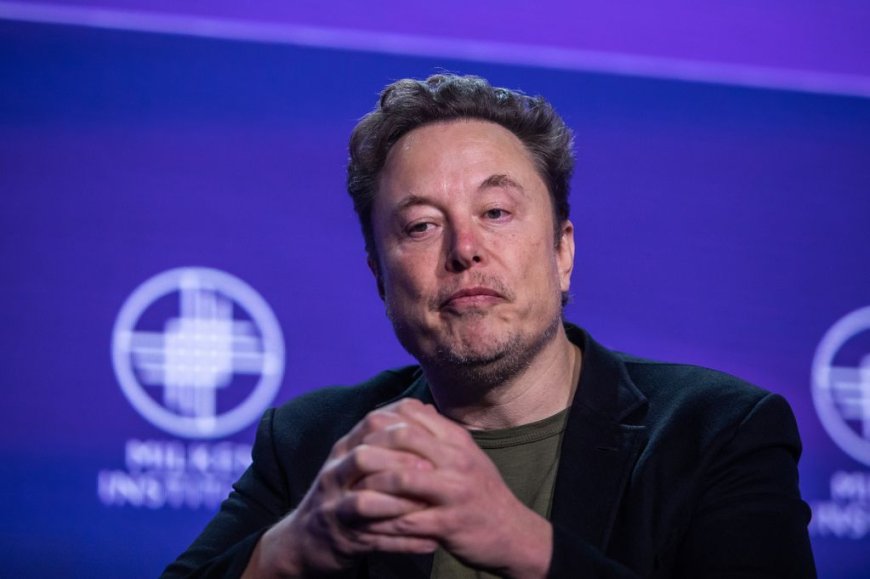Elon Musk's Lawyers to US Judge Reject OpenAI CEO Sam Altman's Request to Show Chats Between Musk and Meta CEO Mark Zuckerberg
Elon Musk’s lawyers reject OpenAI CEO Sam Altman’s request to show chats with Meta’s Mark Zuckerberg, sparking legal and tech world debate.

Introduction
The legal battle surrounding artificial intelligence, corporate competition, and ethical debates has once again taken center stage. Recently, Elon Musk’s legal team rejected OpenAI CEO Sam Altman’s request before a US judge to reveal private chat exchanges between Musk and Meta CEO Mark Zuckerberg. This development has sparked global interest, as it connects three of the most influential figures in the AI and tech world. The case reflects deeper tensions not just about AI’s future but also about corporate rivalry, transparency, and accountability.
History and Background
Elon Musk has long been a critic of OpenAI, an organization he co-founded but later parted ways with, citing disagreements over its direction and commercialization. Musk has also been openly critical of Meta and its handling of artificial intelligence, particularly in areas concerning safety and ethics. The relationship between Musk and Zuckerberg is historically strained, dating back to disagreements about AI risks.
Sam Altman, who has spearheaded OpenAI’s transformation into a leading force in generative AI, reportedly sought to include private communications between Musk and Zuckerberg as evidence in an ongoing legal matter. The goal was to shed light on whether there were collaborative efforts or private discussions that might influence the AI industry’s competitive landscape.
What Happened in Court
Sam Altman’s legal team requested that Musk’s private chat records with Mark Zuckerberg be disclosed, arguing they were relevant to ongoing disputes over AI development, transparency, and competitive practices. However, Musk’s lawyers firmly rejected this request, stating that such private exchanges were irrelevant to the case, overly invasive, and intended to shift attention from the actual issues being contested.
The US judge is now tasked with weighing whether these private chats hold any real significance or whether Altman’s request oversteps privacy and confidentiality boundaries.
Possible Reasons Behind the Rejection
Privacy Concerns – Musk’s team argues that personal or informal communications should not be forced into public legal proceedings.
Relevance – They claim the chats have no direct link to the current case and would not provide material evidence.
Corporate Rivalries – Musk and Zuckerberg’s strained relationship might expose personal disputes rather than factual evidence.
Strategic Move – Rejecting Altman’s request also prevents potential revelations that could harm Musk’s business interests in AI ventures like xAI.
Key Points and Facts
-
Elon Musk co-founded OpenAI in 2015 but left due to disagreements.
-
Meta (led by Zuckerberg) is heavily invested in open-source AI models, a strategy Musk criticizes.
-
Sam Altman requested disclosure of private chats to understand potential alliances or disagreements.
-
Musk’s legal team dismissed the request as irrelevant and an invasion of privacy.
-
The case could set a precedent for how personal communications between tech leaders are treated in court.
Importance and Significance
This legal battle is not just about three powerful individuals—it reflects broader issues:
-
Transparency vs. Privacy – How much transparency should be required in AI governance?
-
Competition vs. Collaboration – Rivalries between tech giants may hinder collaborative safety efforts.
-
Legal Precedent – If the court forces disclosure, it could reshape how corporate leaders’ private communications are treated in future tech disputes.
Advantages and Disadvantages
Advantages of Disclosure:
-
Greater transparency in the AI industry.
-
Could reveal hidden corporate strategies or alliances.
-
Helps regulators understand power dynamics in AI development.
Disadvantages of Disclosure:
-
Breaches privacy and may set a dangerous precedent.
-
Could distract from the core legal issues.
-
Might escalate personal conflicts between tech leaders.
Positives and Negatives
Positives:
-
Promotes public discussion about AI ethics and governance.
-
Highlights accountability in tech leadership.
-
Brings attention to how major tech firms influence global policies.
Negatives:
-
Could create unnecessary drama rather than solutions.
-
Risks sensationalizing legal disputes.
-
May undermine trust between corporate leaders and regulators.
Final Thoughts and Conclusion
The rejection by Elon Musk’s lawyers of Sam Altman’s request to show private chats with Mark Zuckerberg adds yet another layer to the ongoing tensions in the AI world. While the request itself raises important questions about transparency, it also blurs the line between personal privacy and corporate accountability.
The future of this case may set critical precedents for how private communications are handled in legal disputes involving technology giants. More importantly, it underscores the deep rivalries shaping the AI industry and how these rivalries impact innovation, governance, and public trust. As the world watches, the outcome could influence not only AI regulation but also how global tech leaders navigate power struggles in the years ahead.

 Ellofacts
Ellofacts 





